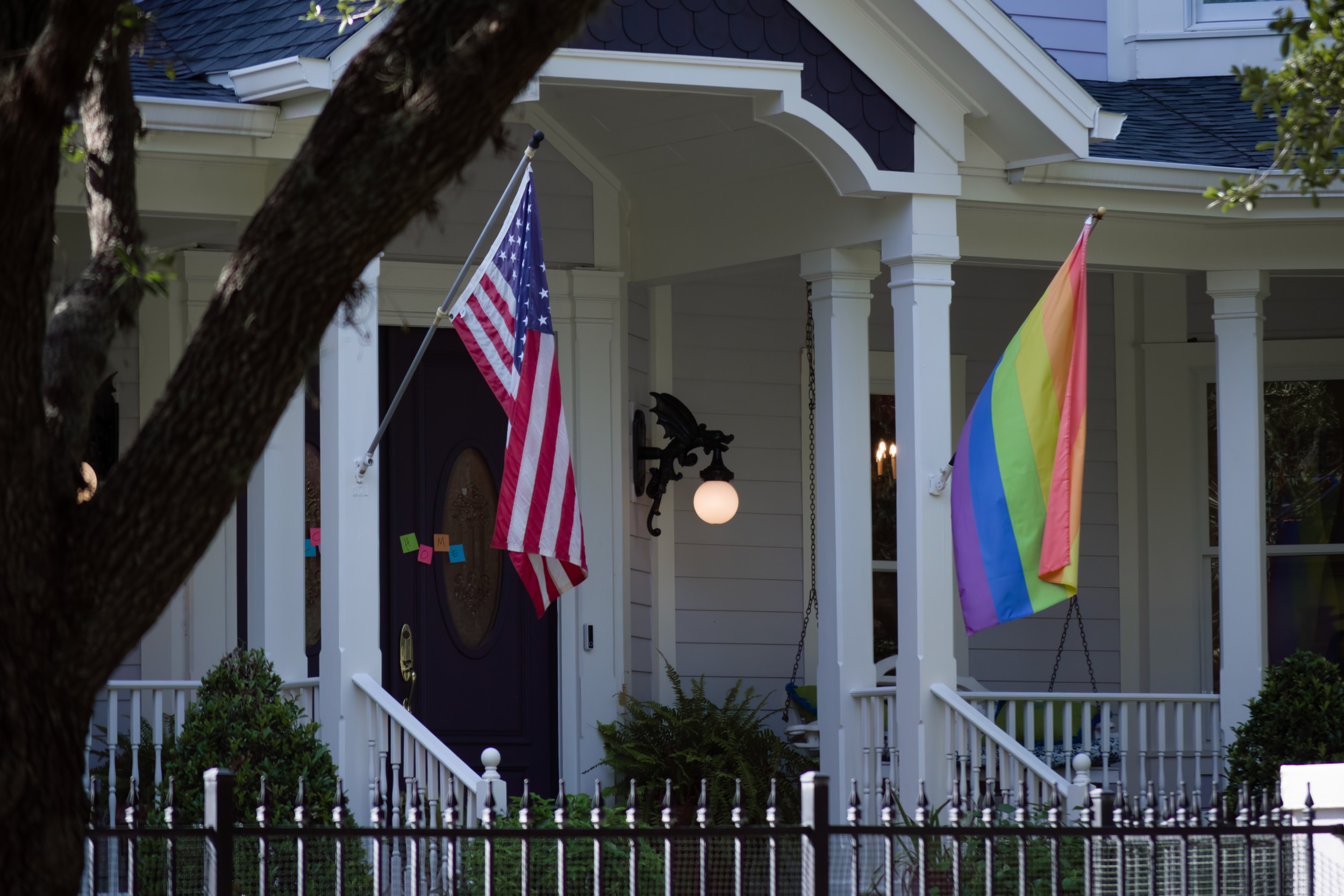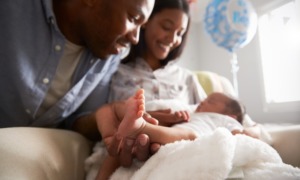At age 17, Rosie Benser couch-surfed with different friends to escape a chaotic home environment. Not knowing where she would sleep next, she eventually dropped out of high school her senior year in Minneapolis to work at a group home and a sandwich shop. She was “ready to enter the next phase of her life,” she said. But without a safe, stable place to stay, she felt stuck.
Then she met Mike Stewart and John Larsen. Stewart and Larsen, a married couple in their 50s who own a house in south Minneapolis, were part of the host home program operated by local nonprofit ConneQT. Benser moved into their spare bedroom and soon began joining them in drinking tea and watching The No.1 Ladies Detective Agency. They cheered her on as she finished her GED classes and stabilized her mental health.
“Without them, I wouldn’t have gone to college, been able to work on my mental health the way I have, or find sustained sobriety,” she said.
LGBTQ+ teens and young adults are more than twice as likely to be homeless than their peers. But across the country, a growing number of adults, many of them queer, are volunteering to open their homes to provide a safe, temporary and welcoming place to LGBTQ+ youth through host home programs.

Courtesy of UW–Madison School of Human Ecology
Mallory VanMeeter
LGBTQ+ adults have long reached out to support young adults and teens facing homelessness, especially queer or transgender Black youth. These new host home programs formalize that practice.
“We’re not creating anything new, we’re really just building off of this history of resilience and resistance,” said Mallory VanMeeter, a youth homelessness researcher at Chapin Hall at the University of Chicago.
Today there are host-home programs for LGBTQ+ youth and other young people facing homelessness in cities including Minneapolis; Baltimore; Louisville, Kentucky; Cincinnati; Seattle; Atlanta; Los Angeles and San Francisco.
In Minneapolis, the nonprofit Avenues for Youth started the ConneQT host home program in 1997 to match LGBTQ+ youth facing homelessness with adult volunteers able to host them. Hosts complete an intensive background check and screening process, two interviews and training. Young people can apply themselves or receive a referral from a youth worker.
At ConneQT, young adults pick a temporary home by reading applications from hosts, rather than the host reading an application from them, ConneQT program manager Ryan Berg said.
In each host application, hosts write an open letter about who they are within the community, their culture, what they do for fun and why they want to be a part of the program.
“It may sound minor to some folks, but it’s usually transformational to not be just another cog in a wheel, but to actually have some agency and some say in what your next step in life is going to be when historically, within these systems, you have had no say,” Berg said.

Courtesy of ConneQT
Ryan Berg
After reading applications, the young person meets with the prospective host or hosts a few times before mutually deciding to live together. ConnecQT requires hosts to provide food and shelter, while the program itself provides a case manager who meets weekly with youth to discuss mental health needs and their personal goals for education, employment and long-term housing.
ConneQT also offers its young clients services including name-change clinics, gender-affirming surgery discussions, sexual and gender health support, mental services, somatic therapy, art therapy and yoga.
Unlike foster homes, most host homes are not licensed by the state. In many cases, host home providers are not paid for their work. While foster parents in most states must go through a battery of assessments and training, most host home providers require a background check and in-depth training centered around white privilege and gender identity. Foster homes also must meet a detailed safety checklist for things like a written emergency escape plan, working smoke detectors and at least two exits in a child’s sleeping area. Many host homes only require a clean, private bedroom with a working smoke detector.
“I don’t care about having an egress window, I care about if a youth and a host feel affirmed in this experience,” Berg said. “It’s really trying to get away from the bureaucracy as much as possible and really center relationship and community building as much as possible.”
Most host home programs generally require parental permission for teens who are under 18, Berg said.
Mallory VanMeeter, the youth homelessness researcher, said many host-home programs emphasize intergenerational connections between young people and hosts.
“There’s a sense of pride in the fact that within the wider LGBTQ community there is a really strong informal social safety net, that in many particularly urban areas of queer families, chosen family comes together in the absence of traditional family support,” she said.
Still, at ConneQT, case managers tell hosts and young people that the program isn’t designed to force them into a new family.
“We don’t make that an expectation of our program because we don’t want youth to feel like they have to build relationships in order to get their needs met,” Berg said. “We ask hosts to be available for that relationship building, but not to push it.”
Benser, now 33, stayed with Stewart and Larsen on and off for about 4 years. During this time, she completed her bachelor’s degree from Augsburg University. After earning a master’s degree from Syracuse University, she began working as a case manager with ConneQT. She moved to her own place in 2013, but still returns to Stewart and Larsen’s home for the holidays, she said.
“There’s often this feeling in host homes like this is temporary and not really my home, but Mike and John let me take the lead in terms of guiding the relationship,” she said.
Stewart and Larsen have hosted two young adults in the last 13 years including Benser. Last summer, they hosted her tea-party-themed wedding in their backyard.
“Emotionally, I think all of us were changed through this process. They are our kids and they talk about us like we’re their dads, Larsen said. “It’s lovely.”
***
Claire Becknell is an Atlanta-based journalist.






























